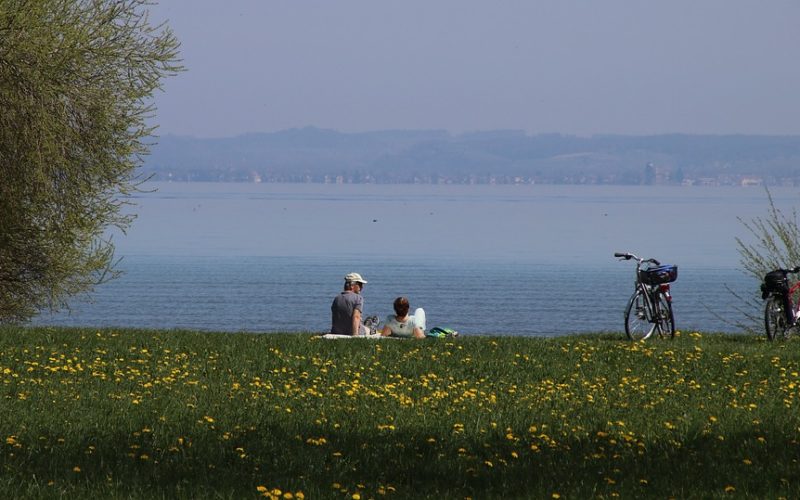Leads to Heartbreak
Long term relationships can be quite challenging to maintain, and oftentimes lead to heartbreak. Arguments become more frequent, and the lack of face to face time with each other can sometimes worsen the situation.
Couples may find themselves spending more time with local friends than with each other, which further widens the gap between them. It's important to understand that long term relationships require a significant amount of effort and commitment, and not everyone is equipped to handle that. It's not to say that it's impossible, but it certainly requires a great deal of patience and understanding.
Ultimately, it's up to the couples to evaluate their relationship and determine whether or not it's worth investing time and energy into it.
Distance makes the heart grow fonder
Distance can be a double-edged sword when it comes to relationships. On the one hand, it can make the heart grow fonder as absence makes the heart grow fonder.
However, there is also the potential for distance to weaken long-term relationships and make the heart grow colder. Indeed, numerous studies have found that physical separation can place significant strain on couples, leading to feelings of loneliness, distrust, and a sense of disconnect. While technology has undoubtedly made long-distance communication easier, it is not always enough to counteract the toll that distance can take on a relationship.
Maintaining open communication, setting clear expectations, and finding ways to bridge the distance can all help to ensure long-term relationship success despite the challenges that come with physical separation.
Fighting from afar
When you are in a long-distance relationship, it can be tough to resolve conflicts. The physical separation can make it harder to communicate effectively, and misunderstandings can quickly escalate. However, overcoming these challenges is not impossible.
One key strategy is to prioritize communication. Make sure you are regularly checking in with each other about how you are feeling, and be willing to listen and express yourself honestly. Another important tip is to establish clear boundaries and expectations around communication and how you will handle disagreements.
This can help prevent arguments from spiralling out of control. Ultimately, succeeding in a long-distance relationship requires patience, commitment, and a willingness to work through challenges together.
Quantity vs quality
Maintaining a healthy relationship with your significant other while living apart can be a daunting task.
One of the biggest dilemmas faced by geographically separate couples is finding a balance between Face Time and independent pursuits. Spending quality time together is important, but so is having enough time and space for individual hobbies and interests. It's not just about the quantity of time spent together, but also the quality of the time spent.
Finding the perfect balance between the two can prove to be a challenge, but it is essential for a strong and lasting relationship. So, how can couples ensure they have a good balance of Face Time and independent pursuits? The answer lies in effective communication, planning ahead, and being flexible enough to adapt to changes in circumstances.
By prioritising both quality time spent together and individual pursuits, you can build a healthy and fulfilling relationship, no matter the distance.
Communication crashes
Communication has never been easier than it is today, thanks to technology. With just a click of a button, we can talk to someone on the other side of the world. However, despite its conveniences, technology can also be a source of frustration.
Technical issues, such as poor internet connection or dropped calls, can compromise the quality of communication, leading to misunderstandings and even conflict. To maintain intimacy over long distances, it is important to have a solid plan in place. Strategies such as setting aside dedicated time for communication, using backup devices or services in case of technological failure, and focusing on active listening can help improve the overall quality of long-distance communication.
By being aware of technical pitfalls and having a plan to stay closely connected, we can ensure that distance does not become a barrier to intimacy and communication.
Fading into friendship
As relationships progress, it’s common for the initial spark to fade. What was once an invigorating romance can turn into a comfortable companionship.
While most couples understand that a relationship will inevitably change over time, many struggle with finding new ways to connect with their partner. That’s where local friends come in. Spending more time with friends who share common interests can be a great way to rejuvenate a relationship. It can provide a fresh perspective and allow couples to explore new hobbies together. Additionally, incorporating friends into date nights or weekend getaways can add excitement and prevent the relationship from becoming too routine.
By actively seeking new ways to include friends in their lives, couples can navigate the changing dynamics of a relationship and build lasting connections with each other and their community.
Is the grass really greener?
It's not uncommon to look at other couples and wonder if their grass is really greener. However, it's important to remember that no relationship is perfect and that everyone has challenges.
If you find yourself feeling disconnected from your partner and thinking about what it would be like to be with someone else, it's time to take a step back and reevaluate your relationship. Are there issues that need to be addressed? Do you need to communicate more effectively or spend more quality time together?
By dispelling the myth that others have it better, you can rekindle the passion in your own relationship and learn to appreciate what you have.
When to walk away
Long-term, long-distance relationships are no easy feat, and unfortunately, sometimes they just don't work out. Recognising the signs that it's time to walk away can be difficult, but it's important to pay attention.
One of the most obvious signs is a lack of communication. If you're struggling to keep a conversation going or finding it hard to make time for each other, it may be time to face facts. Distance can create a barrier, but it should never be an excuse to stop trying. Another sign is a lack of trust. It can be tough to build trust in any relationship, but especially one where you're not seeing each other regularly.
If one or both partners are constantly questioning the other's motives or actions, it may be impossible to build a strong foundation. Ultimately, recognising the signs and peacing out early can save you a lot of heartache and time in the long run.
Making distance relationships work
Making distance relationships work can be a daunting task for many couples. However, there are successful strategies that have been developed by couples who have managed to bridge the geographic gap.
One such strategy is effective communication - regular communication can help establish and maintain connections between partners. Another is finding common interests and hobbies, creating shared experiences even when miles apart. Additionally, trust and understanding are crucial components of a successful long-distance relationship.
Couples who have worked through the challenges of distance have often come out stronger on the other end. With perseverance and dedication, it is possible to make a long-distance relationship work, and many couples have found great success doing so.


















